For over 150 years, The New York Foundling has worked in partnership with our neighbors to ensure that everyone can meet their full potential when facing challenging situations. This hasn’t changed, and our staff continue to provide life-changing and meaningful support in light of the COVID-19 pandemic. This series shares how The Foundling’s many programs are responding to the needs of their community.
The Staten Island Community Partnership, an initiative of the Administration for Children’s Services (ACS) operated by The Foundling, works hand-in-hand with residents, community groups, service providers, and local government to encourage and develop new approaches to solving issues facing children, including child abuse and neglect. The partnership aims to weave a safety net for families with family-centered and community-based services that provide impactful and educational opportunities. Together with those closest to the challenges at hand, the partnership engages community members to understand their strengths and needs and create sustainable solutions that produce positive change.
Similarly, Healthy Families Staten Island is a free, home visiting program designed to help new and expectant parents meet the challenges of parenting and ensure the healthy development of their children. The program is designed to help prevent child abuse and neglect by promoting positive parenting skills and parent-child interaction. Participants are also connected to community resources that help to strengthen their families.
Throughout COVID-19, our dedicated staff have continued to provide meaningful engagement and support to residents of Staten Island.
The Foundling has been serving the community of Staten Island for decades. The Foundling’s Staten Island Community Partnership (SICPP) and Healthy Families Staten Island program (HFSI) are two programs that work closely together to support the North Shore Staten Island community. Together they aim to reduce the number of children and families involved in the child welfare and juvenile justice systems through preventative measures and support.
“We’re basically the glue that bands together a network of community-based organizations, and the core of what we do is finding and solving local issues.” Christopher noted, “We have ambassadors who are our eyes, ears, and feet within the community, who are trained to identify potential trouble spots. Some we’ve identified in the past include things like teen vaping, gang action, and understanding sexual consent. We’ll then either design interventions to address those issues or refer individuals to existing programs or The New York Foundling for help.”
Due to social distancing and stay at home orders, it has been more challenging than ever to monitor people’s well-being. “Most of what we know is through word of mouth,” says Valarie Taveras, The Foundling’s Assistant Vice President overseeing both SICPP and HFSI.
“With everything shutdown, one of the issues we’ve seen in teenagers is they are getting bored,” Christopher said. “All the usual summer activities, extracurriculars, and job opportunities that were available to them before aren’t around now to keep them busy and out of trouble. So, we’ve had to get creative about virtualizing our events to keep community members in touch and engaged.”
For example, SICPP now partners with other organizations to host game-oriented virtual academies where teens can meet and interact through supplemental educational activities online. By the end of June, SICPP will be distributing 200 board games to families to help pass time during the summer months.
“We have an annual Fatherhood Fun Day event coming up that’s been completely virtualized,” Christopher says, noting the event will include a DJ and other entertainment for dads to participate in virtually with their families. Various organizations will be present to explain their work and services.
Throughout May and June, SICPP has also been supporting the North Shore with a grocery distribution program. Every week, the Partnership orders a large delivery of meat, fruits, vegetables, and other essential foods to organize and distribute. “So far we have given out 50 bags out each time, and expect to distribute even more in the weeks to come,” Christopher says.
“I’d like to give a special shout out to Khristian Taveras, another Foundling employee,” Valerie added, “He has consistently received the dry and frozen goods since the initiative’s inception. Without his help, the effort would have been delayed.”
Similarly, SICPP’s Laundry Initiative, “Washing away COVID,” has generated nearly 500 emails and registrations of interest. In partnership with Clean Rite Laundry Centers, 375 laundry cards worth $40 each will be distributed amongst the community. SICP is also piloting a program with ACS and Lyft that will supply $30 in rideshare credits for transportation and MetroCards, and taking on an “assistance grant” initiative to provide direct relief.
While SICPP works with all age groups, HFSI specifically helps soon-to-be and new mothers prepare for motherhood. Through intensive home visits, now conducted virtually, HFSI provides mothers with the coaching, tools, and skills they will need as a parent. The program starts prenatal, or at the latest when the child is three months old, and ends when the child is 4-5 years old.
“Many of the mothers we see are transient or here alone in the country,” Valarie explains, “They don’t necessarily have access to family support, information, and resources about having and raising a child. Motherhood is scary and nerve-wracking as it is, and then you add those factors. So, we are here to help them.”
“I was nervous at first about the transition to virtual home visits, but it was seamless,” Valerie continues, “We’ve had to adapt some of our events to fit a virtual format, but overall, not being in an office has been the only real difference.”
Such virtualized events include regular playgroups and HFSI’s annual baby shower. For the latter, packets full of traditional baby shower games and gifts were distributed to the mothers ahead of the event. Since the annual baby shower typically serves attendees food, HFSI also provided Target gift cards so they wouldn’t miss out on the perk.
“Even though all our events are virtual now, the Staten Island community is still excited to participate and stay connected.”
To learn more about how The New York Foundling is responding to the COVID-19 pandemic in New York, visit our emergency response page. Stay tuned for more stories from the frontlines as we continue to support our neighbors on paths to stability and strength.

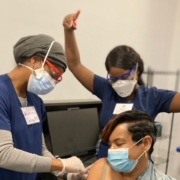
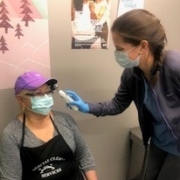
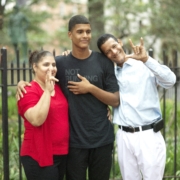
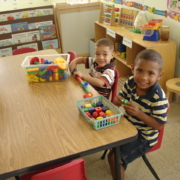
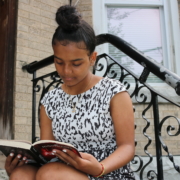
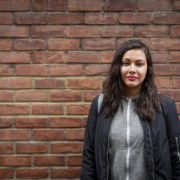
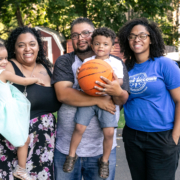
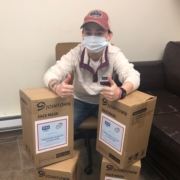
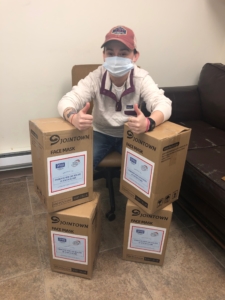
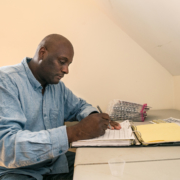
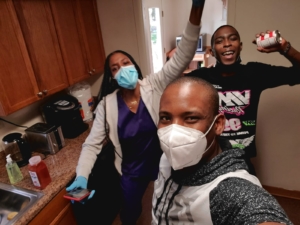
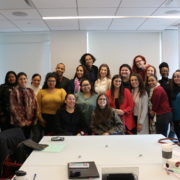
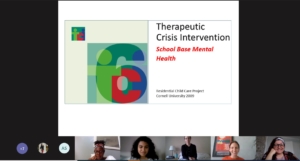 As of April, the School Based Mental Health Services team has provided Telehealth treatment to 212 students and families, 277 therapeutic sessions, and helped schools respond to six community member mental health crises. Unsurprisingly, these statistics are on par with our impact when schools are in session, demonstrating the team’s adaptability as well as the essential nature of the program.
As of April, the School Based Mental Health Services team has provided Telehealth treatment to 212 students and families, 277 therapeutic sessions, and helped schools respond to six community member mental health crises. Unsurprisingly, these statistics are on par with our impact when schools are in session, demonstrating the team’s adaptability as well as the essential nature of the program.